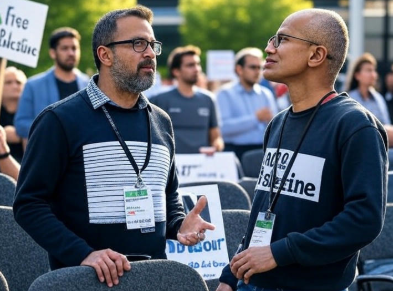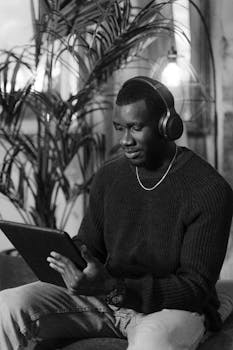When you watch a Premier League match between Arsenal and Newcastle, what you see on the surface is just the tip of the iceberg. Underneath the beautiful game lies a sophisticated technological battlefield where GPS trackers, artificial intelligence, and data analytics determine who wins and loses before players even step onto the pitch.
The Invisible Revolution on the Field
Modern football has become a sport driven by data. Every sprint, every pass, every heartbeat is tracked, analyzed, and turned into actionable insights. The technology revolution in football isn’t just changing how teams prepare – it’s fundamentally altering what it means to be a professional footballer in 2025.
Take Arsenal, for example. The Gunners have been pioneers in football technology for over a decade, investing heavily in systems that most fans never see. Every Arsenal player wears a small GPS device during training and matches, collecting thousands of data points every second. These aren’t just simple step counters – they’re sophisticated pieces of technology that measure everything from acceleration patterns to the exact angle of their runs.
GPS Technology: The Game Changer You Can’t See
The heart of modern football analytics lies in GPS tracking technology. Companies like STATSports have developed devices so small and lightweight that players barely notice them, yet they’re powerful enough to track movements with pinpoint accuracy.
These GPS trackers, worn in specially designed vests under players’ jerseys, collect data that would have seemed impossible just a few years ago. They measure:
- Distance covered at different speed zones
- Maximum sprint speed and acceleration rates
- Heart rate variability and recovery patterns
- Number of high-intensity runs and their timing
- Positional data showing exactly where players move on the field
- Impact measurements from tackles, jumps, and collisions
What makes this technology truly revolutionary is its real-time capabilities. Coaches can see live data streaming from every player during training sessions, allowing them to make instant decisions about workload management and tactical adjustments.
Arsenal’s Technological Arsenal
Arsenal’s relationship with data analytics runs deeper than most clubs. They were one of the first teams to acquire StatDNA, a company that specializes in football data analysis. This wasn’t just buying a service – Arsenal purchased the entire company, giving them exclusive access to one of the most comprehensive football databases in the world.
The StatDNA system works by having analysts watch video footage of games and code them in incredible detail. Every touch, every movement, every decision is recorded and analyzed. This creates a massive database that Arsenal uses to scout players, analyze opponents, and improve their own performance.
But Arsenal’s technological advantage doesn’t stop there. The club has been using STATSports technology for over a decade, making them one of the early adopters in the Premier League. The system provides real-time data on player performance, allowing coaches to identify strengths and weaknesses that might not be visible to the naked eye.
Studies have shown that players using STATSports tracking systems can improve their maximum speed by up to 9.4% and increase their high-speed running by 13.6%. These might seem like small numbers, but in professional football, marginal gains of even 1% can be the difference between winning and losing.
The Newcastle Counter-Attack
Newcastle United hasn’t been sitting idle in the technology race. The Magpies have partnered with ORRECO, an external AI company that specializes in sports science and performance optimization. This collaboration represents a different approach to the same goal – using technology to gain competitive advantages.
ORRECO’s system focuses heavily on AI-driven insights, using machine learning algorithms to predict injury risks, optimize training loads, and suggest recovery protocols. This artificial intelligence approach allows Newcastle to process vast amounts of data quickly and identify patterns that human analysts might miss.
The competition between Arsenal’s comprehensive data ownership approach and Newcastle’s AI-partnership strategy represents two different philosophies in football technology. Arsenal has chosen to bring everything in-house, giving them complete control over their data and analytics. Newcastle has opted for specialized external expertise, potentially accessing cutting-edge AI developments faster than clubs trying to develop everything internally.
Beyond the Numbers: How Technology Changes the Game
The real impact of this technology goes far beyond simple statistics. It’s changing fundamental aspects of how football is played and coached.
Injury Prevention: GPS data can predict when a player is at higher risk of injury. By monitoring fatigue levels, muscle load, and recovery patterns, medical teams can intervene before problems occur. This technology has helped clubs reduce injury rates significantly, keeping star players on the field longer.
Tactical Evolution: Coaches now have access to heat maps, passing networks, and movement patterns that reveal tactical insights impossible to see during live matches. They can identify exactly where space is created, how defensive lines move, and which passing combinations are most effective.
Player Development: Young players can now see objective data about their performance, making it easier to identify areas for improvement. The technology provides concrete feedback that helps players understand exactly what they need to work on.
Match Preparation: Teams can analyze opponents with incredible detail, understanding not just what they do, but when and why they do it. This level of preparation allows for more sophisticated game plans and tactical adjustments.
The Prediction Game: AI Meets Football
The latest frontier in football technology is predictive analytics. Advanced algorithms now attempt to predict match outcomes, player performance, and even transfer success rates. These systems analyze thousands of variables, from weather conditions to historical performance patterns, creating probability models that would make statisticians jealous.
Recent predictions for Arsenal vs Newcastle matches show how sophisticated these systems have become. AI models can provide win probabilities with remarkable accuracy, giving Arsenal typical advantages of around 47-53% depending on various factors. These predictions aren’t just guesswork – they’re based on comprehensive analysis of playing styles, recent form, and historical matchups.
The Human Element in a Digital World
Despite all this technology, football remains fundamentally human. The most advanced GPS tracker can’t measure a player’s determination, creativity, or ability to perform under pressure. Technology provides the framework, but players still need to execute on the field.
The best teams understand this balance. They use technology to optimize preparation, prevent injuries, and gain tactical insights, but they also recognize that football is played by humans, not robots. The emotional aspects of the game – leadership, team chemistry, and mental resilience – remain as important as ever.
Looking to the Future
As we move further into 2025, football technology continues to evolve rapidly. Virtual reality training systems allow players to practice scenarios repeatedly without physical wear. AI coaches can provide personalized training recommendations based on individual performance data. Biometric monitoring is becoming so advanced that it can detect early signs of illness or fatigue before players themselves realize something is wrong.
The arms race between clubs like Arsenal and Newcastle isn’t slowing down. Investment in technology and data analytics has become as important as investment in players. Teams that fall behind technologically risk falling behind competitively.
Insights
The next time you watch Arsenal face Newcastle, remember that you’re witnessing more than just 22 players chasing a ball. You’re seeing the result of millions of data points, sophisticated algorithms, and technological innovations that are invisible to the naked eye but fundamental to modern football.
The beautiful game has become more beautiful through technology, not despite it. GPS trackers, AI analysis, and predictive models haven’t removed the magic from football they’ve revealed just how magical the human body and mind can be when optimized through science and technology.
In this invisible technological battle, both Arsenal and Newcastle are pushing the boundaries of what’s possible. The real winners might be the fans, who get to watch football played at a higher level than ever before, even if they never see the technology that makes it all possible.
The revolution is here, and it’s being fought not just on the grass, but in the data centers, laboratories, and training grounds where the future of football is being written one GPS coordinate at a time.



